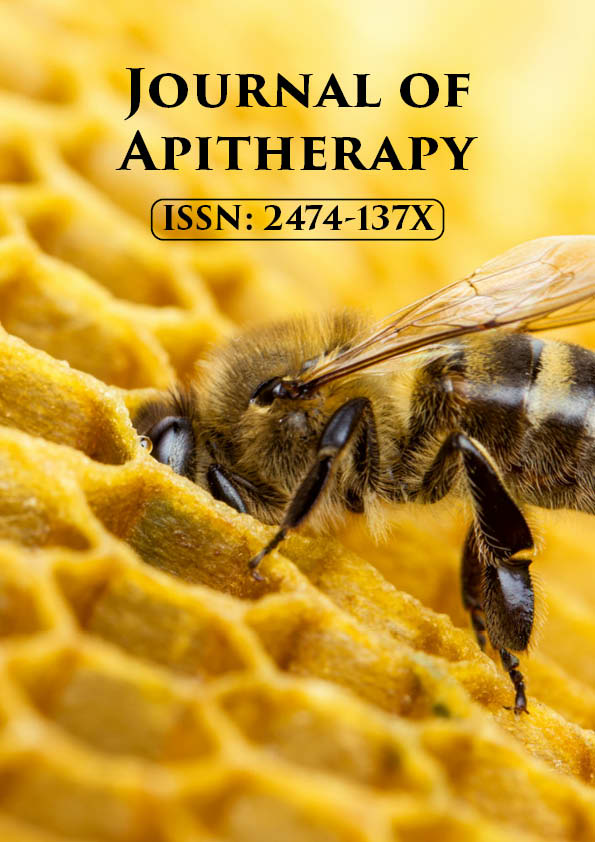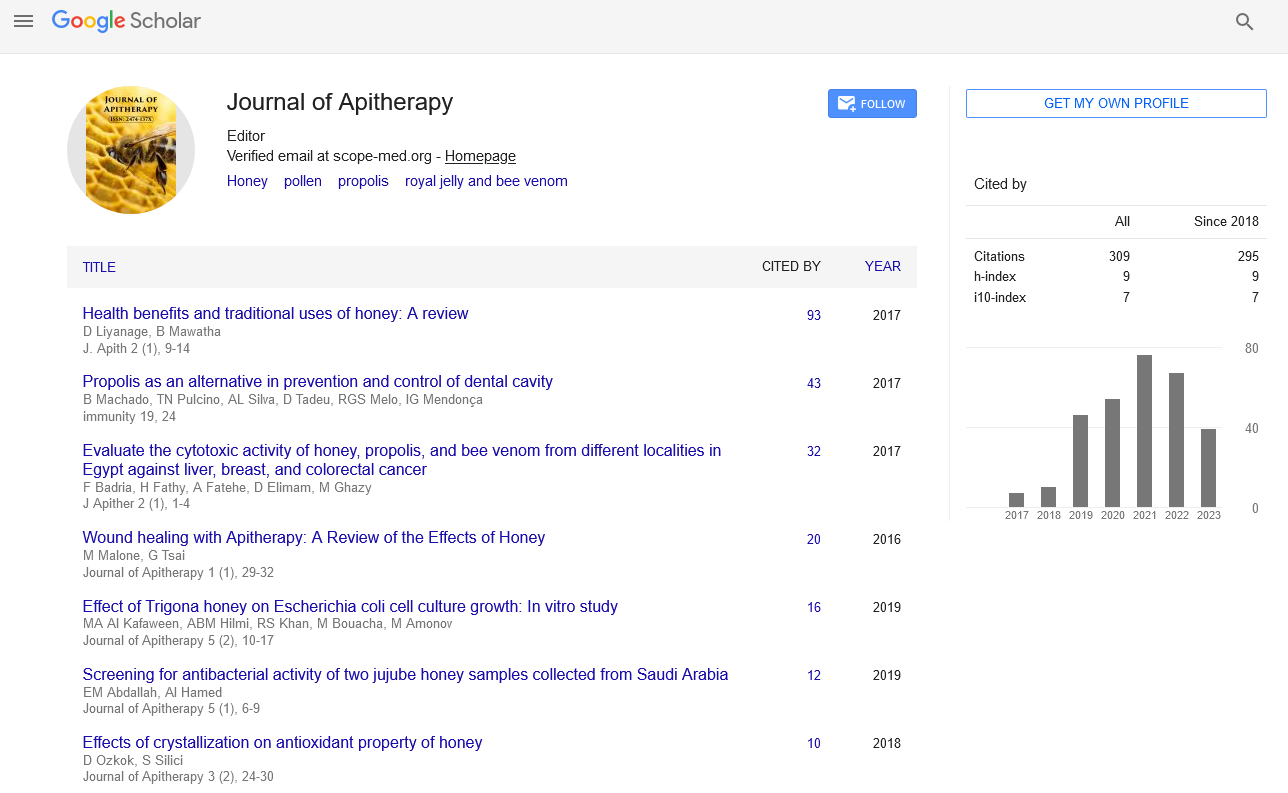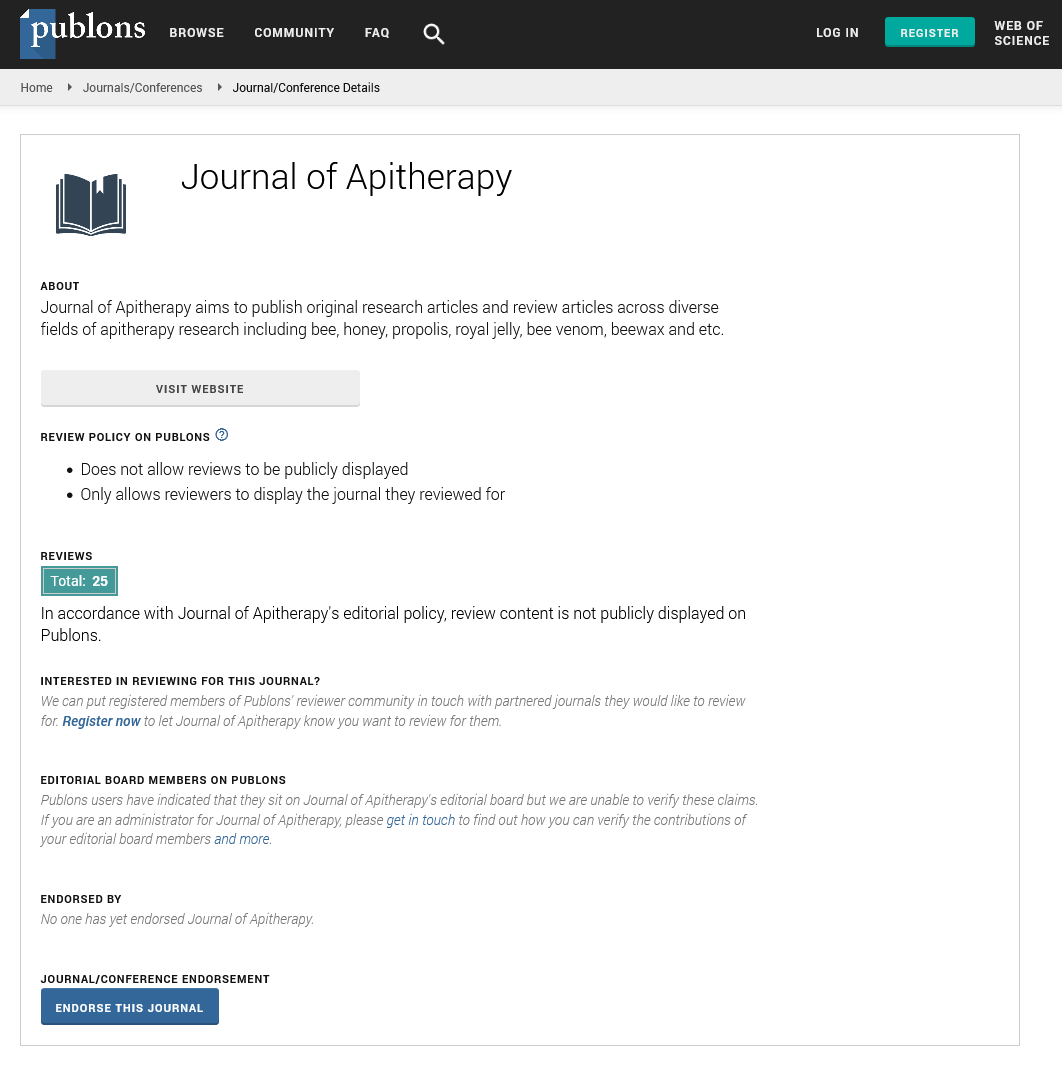Editorial - Journal of Apitherapy (2021)
Apitherapy rhinitis study
Suresh Vatsyayann Sr. ConsultantPublished: 01-Jun-2021
Apitherapy represents a certain form of complementary and alternative medicine that uses bee products in combination with other methods from this field. One of the basic concepts of this type of medicine is that all diseases can be treated using apitherapy. This study was performed to assess the recommendations from authors of books on apitherapy regarding the treatment of seasonal allergic rhinitis and compare them to findings from the scientific literature. Hay fever, also called allergic rhinitis, causes cold-like signs and symptoms, such as a runny nose, itchy eyes, congestion, sneezing and sinus pressure. But unlike a cold, hay fever isn't caused by a virus.Allergic rhinitis, often called hay fever, can cause sneezing, a stuffy or runny nose, watery eyes, and itching of the nose, eyes or the roof of the mouth.Seasonal allergic rhinitis is more common in the spring, summer, and early fall.Symptoms are usually caused by allergic sensitivity to pollens from trees, grasses, or weeds, or to airborne mold spores. Allergic rhinitis, also known as hay fever, is a type of inflammation in the nose which occurs when the immune system overreacts to allergens in the air. Signs and symptoms include a runny or stuffy nose, sneezing, red, itchy, and watery eyes, and swelling around the eyes. During the process of creating new queens, the workers construct special queen cells. The larvae in these cells are fed with copious amounts of royal jelly. This type of feeding triggers the development of queen morphology, including the fully developed ovaries needed to lay eggs. Royal jelly is a honey bee secretion that is used in the nutrition of larvae and adult queens.It is secreted from the glands in the hypopharynx of nurse bees, and fed to all larvae in the colony, regardless of sex or caste. One hundred and twenty-nine books on apitherapy were analysed regarding recommendations for allergic seasonal rhinitis. Scientific evidence regarding the efficacy of using various bee products was searched via PubMed and JUSTfind.
Only 38.8% of the apitherapy books mentioned seasonal allergic rhinitis. Among these books, we found 29 different recommendations in favour of bee products and one against the use of honey. The most reasonable recommendation according to clinical studies on the subject, namely the use of a mix of honey and pollen, was only found once (0.8%). The large discrepancies and number of different recommendations demonstrate that apitherapy is not a consistent type of medicine. The recommendations regarding seasonal allergic rhinitis in the vast majority of apitherapy books cannot be considered adequate when compared to the scientific findings.







